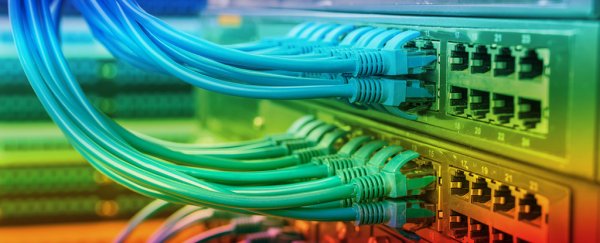The US Federal Communications Commission (FCC) has unveiled a new plan to make the Internet more affordable for poor Americans.
Under a proposed update to its existing Lifeline financial assistance program for phone services, the FCC would expand the use of monthly subsidies to include broadband services. If the plan – which will be voted on by the FCC later in the month – gets the go-ahead, low-income consumers will be able to apply a US$9.25 monthly subsidy toward fixed or mobile broadband Internet in addition to voice/telephone services.
"Lifeline was established in 1985 to help low-income Americans afford access to vital communications, and the program has allowed tens of millions of Americans to afford basic phone service," FCC chairman Tom Wheeler and commissioner Mignon Clyburn wrote in a blog post this week. "But at a time when our economy and lives are increasingly moving online and millions of Americans remain offline, it doesn't make sense for Lifeline to remain focused only on 20th century voice service."
While Lifeline was updated in 2005 to include support for mobile phones, the new proposals are the first Lifeline salvo to address Internet affordability – a significant issue in the US, where, according to the FCC, more than 64 million people don't have an Internet connection, primarily citing cost as the reason.
Of the low-income Americans who do subscribe to online services, staying connected isn't easy either. Almost half (48 percent) of low-income consumers for whom a smartphone is the way to access to the Internet have had to cancel or shut off their service at some point for reasons of financial hardship.
Wheeler and Clyburn say real people are hiding in these statistics: "[U]nemployed workers who miss out on jobs that are only listed online, students who go to fast-food restaurants to use the Wi-Fi hotspots to do homework, veterans who are unable to apply for their hard-earned benefits, seniors who can't look up health information when they get sick."
Under the plan, new rules will be in place to encourage broadband providers to take part in the scheme, along with new eligibility criteria to prevent people abusing the system. Broadband providers will need to offer a minimum standard of service – 10 Mbps downloads/1 Mbps uploads – in line with "what a substantial majority of consumers receive".
While the proposal doesn't have the green light yet, if it passes, it could dramatically ease access to broadband for millions of Americans, and the Internet itself will be a better place for having them online.
"Internet access has become a pre-requisite for full participation in our economy and our society, but nearly one in five Americans is still not benefitting from the opportunities made possible by the most powerful and pervasive platform in history," write Wheeler and Clyburn. "We can do better. We must do better."
